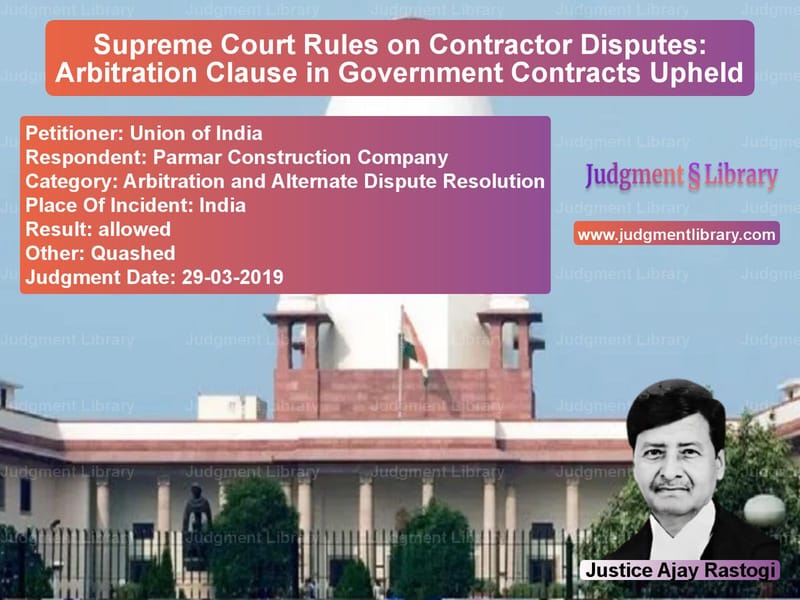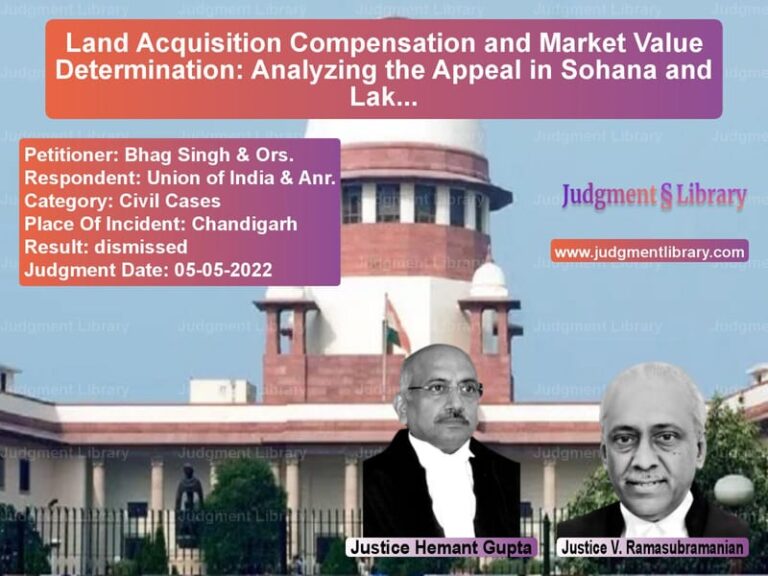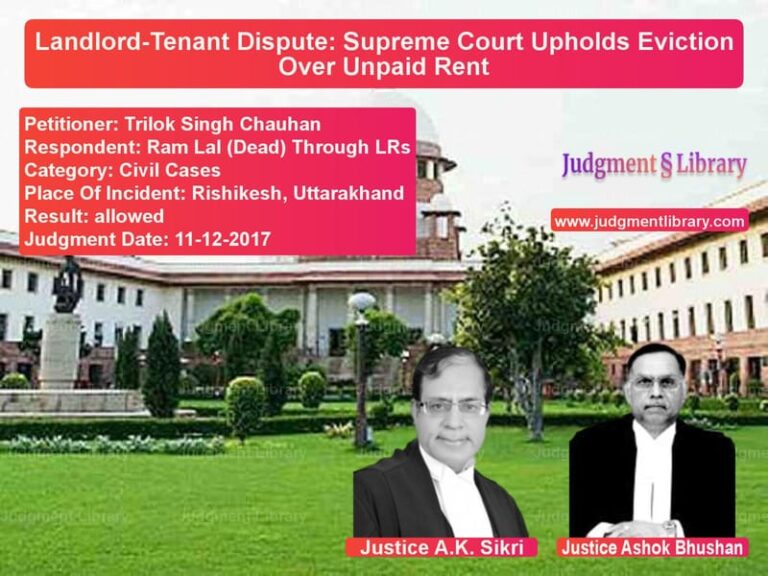Supreme Court Rules on Contractor Disputes: Arbitration Clause in Government Contracts Upheld
The Supreme Court of India, in a landmark ruling, has reaffirmed the sanctity of arbitration clauses in government contracts, specifically in the case of Union of India vs. Parmar Construction Company and related appeals. The judgment provides clarity on whether contractors can bypass arbitration agreements and approach the courts when disputes arise.
The Court examined three crucial issues:
- Whether the High Court was justified in appointing an independent arbitrator despite an existing arbitration clause.
- Whether the signing of a ‘No Claim Certificate’ by contractors nullifies their right to seek arbitration.
- Whether the amendments introduced by the Arbitration and Conciliation (Amendment) Act, 2015, apply retrospectively.
Background of the Case
The appeals arose from disputes between contractors and the Indian Railways. The contractors undertook construction projects such as building roads, bridges, and office accommodations for the Railways.
Disputes arose over:
- Non-payment of final bills and security deposits.
- Unilateral deductions from contractor invoices.
- Delays in project completion due to government inefficiencies.
- Alleged coercion in obtaining ‘No Claim Certificates’ from contractors.
The contractors invoked arbitration under Clause 64(3) of the General Conditions of Contract (GCC). When the Railways refused to appoint arbitrators, the contractors approached the High Court under Section 11(6) of the Arbitration and Conciliation Act, 1996, which resulted in the appointment of independent arbitrators.
Petitioner’s Arguments (Union of India)
The Union of India, representing the Indian Railways, made the following arguments:
- The contract explicitly stated that arbitration must be conducted by arbitrators nominated by the Railways.
- Contractors had signed ‘No Claim Certificates,’ confirming they had no outstanding claims.
- The Arbitration and Conciliation (Amendment) Act, 2015, which introduced stricter neutrality requirements for arbitrators, should not apply retroactively.
- The High Court overstepped its jurisdiction by appointing independent arbitrators instead of enforcing the contractually agreed arbitration procedure.
Respondent’s Arguments (Contractors)
The contractors argued:
- ‘No Claim Certificates’ were signed under financial duress as a precondition to receive pending payments.
- The Railways’ refusal to appoint arbitrators justified the High Court’s intervention.
- The amended Arbitration Act applied to ongoing arbitration requests, making the Railways’ appointment of arbitrators unfair.
- Their right to arbitration should not be nullified merely because the Railways failed to fulfill its contractual obligations.
Supreme Court’s Observations
The Supreme Court analyzed the matter and ruled:
“The arbitration agreement between the parties must be respected unless there are compelling reasons to override it. The mere existence of a ‘No Claim Certificate’ does not preclude arbitration if it was obtained under duress.”
Regarding arbitrator appointments, the Court stated:
“The High Court should not have appointed independent arbitrators without first ensuring compliance with Clause 64(3) of the GCC. Judicial intervention is justified only if the agreed arbitration mechanism fails.”
The Court also ruled that the 2015 Arbitration Act amendments would not apply retroactively to arbitration requests made before 23 October 2015.
Final Judgment
The Supreme Court ruled in favor of the Union of India and held that:
- The High Court’s orders appointing independent arbitrators were quashed.
- The Railways was ordered to appoint arbitrators as per Clause 64(3) of the GCC within one month.
- Contractors were allowed to submit claims before the appointed arbitrators.
The Court emphasized:
“Arbitration should proceed as per the contractual agreement, and courts should interfere only when procedural fairness is compromised.”
Implications of the Verdict
The ruling has several important implications:
- Reinforcement of Contractual Arbitration: Courts will now be less likely to interfere in arbitration clauses outlined in government contracts.
- Contractor Protection: The ruling affirms that coercion in obtaining ‘No Claim Certificates’ can be challenged.
- Limitations on Judicial Intervention: The judgment limits the power of High Courts to override existing arbitration agreements.
- Timely Dispute Resolution: The Railways was directed to conduct arbitration swiftly to avoid unnecessary delays.
By reinforcing arbitration clauses while ensuring fairness, this ruling serves as an important precedent for resolving contract disputes in government infrastructure projects.
Petitioner Name: Union of India.Respondent Name: Parmar Construction Company.Judgment By: Justice Ajay Rastogi.Place Of Incident: India.Judgment Date: 29-03-2019.
Don’t miss out on the full details! Download the complete judgment in PDF format below and gain valuable insights instantly!
Download Judgment: Union of India vs Parmar Construction Supreme Court of India Judgment Dated 29-03-2019.pdf
Direct Downlaod Judgment: Direct downlaod this Judgment
See all petitions in Arbitration Awards
See all petitions in Dispute Resolution Mechanisms
See all petitions in Institutional Arbitration
See all petitions in Judgment by Ajay Rastogi
See all petitions in allowed
See all petitions in Quashed
See all petitions in supreme court of India judgments March 2019
See all petitions in 2019 judgments
See all posts in Arbitration and Alternate Dispute Resolution Category
See all allowed petitions in Arbitration and Alternate Dispute Resolution Category
See all Dismissed petitions in Arbitration and Alternate Dispute Resolution Category
See all partially allowed petitions in Arbitration and Alternate Dispute Resolution Category







